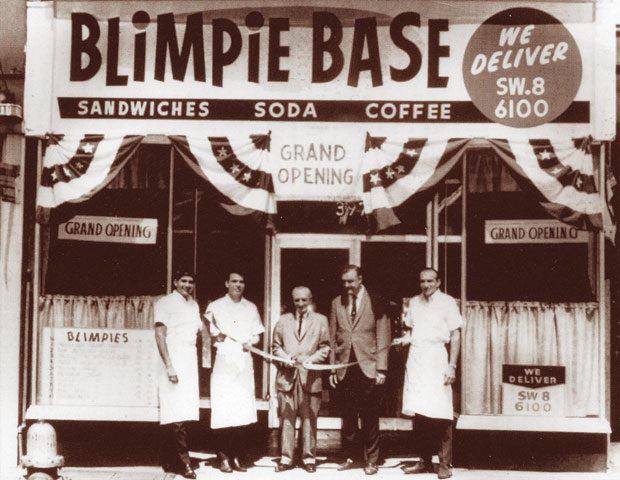
At 74, Tony Conza no longer runs marathons, but he works out five days a week and eats at the toniest restaurants in Miami (where he and his wife, Yvonne, spend winters) and Manhattan (where they spend summers). He manages his investments in stocks, bonds, commodities, oil and natural gas exploration, and shopping centers in Woodbridge, West Paterson and Neptune. He’s come a long way since a knitwear factory in Union City laid him off a few months after he graduated from St. Peter’s Prep in Jersey City in 1957.
“I did nothing for a few months,” he says. Then, through his father, who worked on the floor of the New York Stock Exchange jotting down transactions to be put on the ticker tape, he got a job as an order clerk. He later transferred to the trading department. After five years, he felt he had learned enough to start his own business. The question was, what kind of business?
One night in 1964, he and his best friend from high school, Peter DeCarlo, went to a party in Jersey City and ran into another high school chum, Angelo Baldassare. “The conversation turned to this sandwich joint in Point Pleasant that had a sandwich called the submarine that people loved,” Conza relates. “In Jersey City and Hoboken we had hero sandwiches, which were mostly meatballs or sausage and peppers. The next morning, hangovers notwithstanding, we drove down to this place.”
Called Mike’s Subs, it made sandwiches from Italian cold cuts, shredded lettuce, sliced tomatoes, oil and vinegar on soft bread. “People were lined up for it,” Conza recalls. “It had a unique taste and a mouthwatering sensation. On the way back we said, ‘Let’s open a sandwich place.’ The only problem was, we had no money.”
They also had no name. Leafing through a dictionary, starting with A, Conza stopped halfway through the B’s when he saw “blimp.” It’s shaped like a sandwich, he thought. And a blimp needs an airbase. The three partners borrowed $2,000 from a friend and $500 from a jukebox operator and opened the first Blimpie Base (the latter word was dropped within a year) at the corner of Seventh and Washington streets in Hoboken. They first sought the blessing of the owner of Mike’s Subs, who said the stores were far enough apart that there was business enough for both. (Indeed, under a later owner, Mike’s Subs became Jersey Mike’s, today a much larger chain than Blimpie’s.)
The friends had no money for ads, bunting or fliers. Yet on opening day, Saturday, April 4, 1964 (the day “Can’t Buy Me Love” jumped to No. 1 on the Billboard Hot 100, giving the Beatles all five top spots), the three men sliced cold cuts, assembled sandwiches and (on manual cash registers) literally rang up customers for 12 hours nonstop. The day’s receipts, $265, sound paltry until you consider that most sandwiches cost 35 or 50 cents.
Their biggest dream was to open 10 stores. Within 90 days they had opened a second and a third. “Suppliers were excited to see how much bread and meat we were selling,” Conza says. But instead of paying their bills, they funneled their cash flow into opening more stores.
Turkey proved very popular, so they started buying loads of it from Watson’s Turkey Farm in Gloucester County. “We must have owed them $10,000 at one point,” Conza says. One day, a large man in coveralls, a plaid shirt and filthy work boots walked into the carpeted office Blimpie’s had opened in Jersey City’s Journal Square. “His boots smeared turkey dung on our carpet. He said, ‘My name is Irvin Watson, and you owe me a lot of money.’ We sat him down, made nice and worked out a deal with him.”
Debt kept gobbling up the cash the stores brought in, so in desperation, they sold the ones they owned, turning them into franchises, and started selling more franchises. It took years to climb out of debt. The ’70s and ’80s were tough. The partners went their separate ways. Meanwhile, Subway, launched in 1965, became the nation’s largest sandwich chain by 1987, and remains so today.
In 1968, Conza joined forces with a young lawyer, David Siegel. In the ’70s, they began opening stores in Atlanta, did well there, and eventually formed a company they optimistically called Blimpie International. “We had a great run,” Conza says, “from around 1988, when we had 200 stores, until we had about 2,100 stores.” In 2002, he and Siegel sold the company to an investment group for a sum between $25.8 million and $33 million.
From that day Conza has had no connection with Blimpie, now part of Kahala Brands (which also owns Cold Stone Creamery). There are only about 600 stores now, but at last Blimpie’s is truly international, with eight locations in Kuwait.
Kahala pulled Conza back into the limelight this year to help promote the 50th anniversary, including an event at a Jersey City store in April. “People lined up,” Conza says. “They still love the sandwich.”
In pop-culture terms, if Blimpie’s nadir was making David Letterman’s “Top Ten Signs You’re Too Fat” in 2002 (“7. You skip your son’s wedding because you don’t want to miss Blimpie’s two-for-one sale.”) the peak was Sex and the City’s “Running With Scissors” episode in 2000. In it, Miranda complains to a Blimpie store manager that his guy in the sandwich costume invited her to “Eat me!” His response?
“Lady, he’s a sandwich.”
